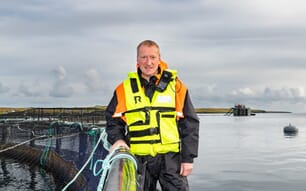The facility, located in Pleasantview, on Notre Dame Bay in northeast Newfoundland, attained BAP certification in late November. Along with its processing plant, Norlantic Processors operates three mussel farm sites totaling 728 hectares and is looking at pursuing BAP certification for its mussel farms in the future.
The vertically integrated company produces around 1 million pounds (453,600 kilograms) of blue mussels annually, with plans on increasing production in the coming years. The company’s fresh mussels are marketed to retail and foodservice customers throughout North America under the NPL brand.
“To be the first in any achievement feels very rewarding. Earning BAP certification is a benchmark for the company’s processing plant,” said Terry Mills, president of Norlantic Processors. “I would like to thank everyone involved in this certification process for our industry in Newfoundland, especially Darrell Green at the Newfoundland Aquaculture Industry Association (NAIA).”
“Our mussel farmers and processors are global leaders in sustainable farming,” added NAIA Executive Director Cyr Couturier. “Adding the GFSI (Global Food Safety Initiative)-compliant BAP mussel processing plant standards to the arsenal of third-party certification tools is a testament to this high degree of commitment to demonstrating responsible farming and processing practices.”
Mussel processing plants became eligible for BAP certification with the completion of the BAP mussel farm standards in August. In October, Atlantic Aqua Farms Partnership in Prince Edward Island, Canada, became the first mussel farm to attain BAP certification.
The addition of mussel farm standards represents a key advancement for the BAP program, as the new standards will be used as a template for broader mollusk farm standards encompassing clams, oysters, scallops and abalone.



